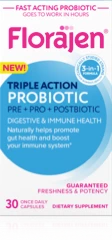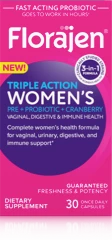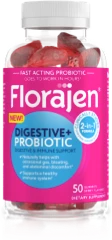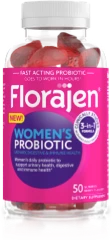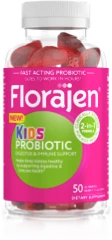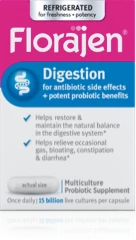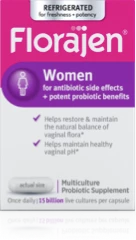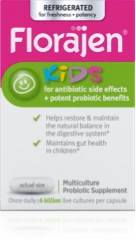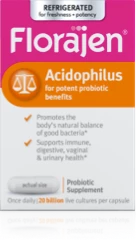News for a Better You!
6 Mind-Blowing Gut & Probiotic Facts
There are so many reasons to be amazed by the human body. Like the fact that your brain is capable of generating 23 watts of power (put two brains to work and you could fully charge your laptop) and that you have more than 100,000 miles of blood vessels in your body (they could wrap […]
Read More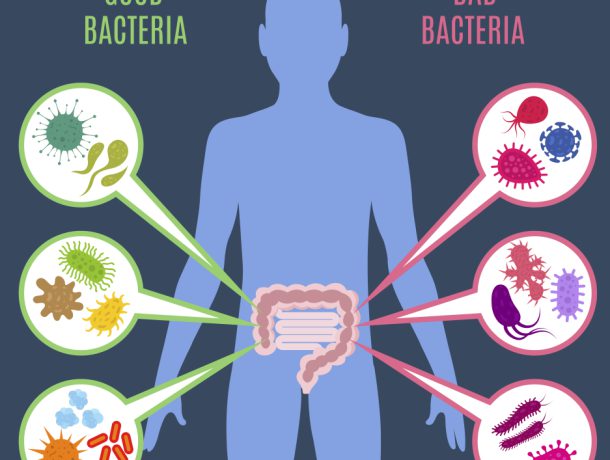
Top 5 Things to Know About Probiotics
Probiotics seem to be everywhere lately. Just scanning the shelves at your local market you might find them touted in soft drinks, cosmetics and even potato chips (not to mention the usual go-tos like yogurt, kefir, kimchi, and unpasteurized sauerkraut.) But with so much swirling in the news about beneficial bacteria, what are the key […]
Read More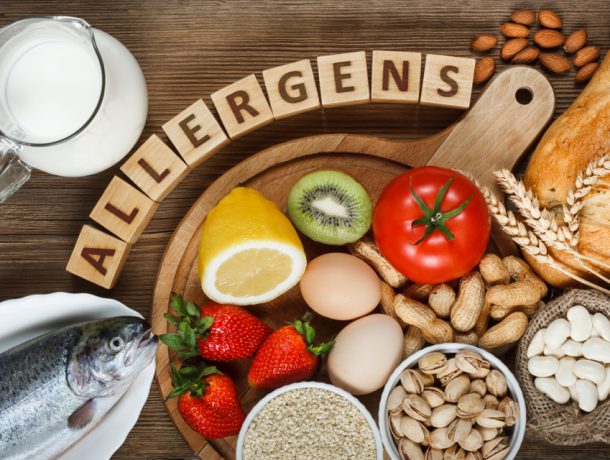
On the Lookout for Allergens?
Here’s What Florajen Wants You to Know
Pop quiz: What are the nine primary (or “major”) allergens responsible for up to 90% of allergic reactions to food? According to the FDA they are: Milk Eggs Fish (bass, cod, flounder and others) Crustacean shellfish (such as shrimp, crab and lobster) Tree nuts (including almonds, cashews, pecans, pine nuts, and walnuts) Peanuts Wheat Soybeans […]
Read More
Probiotics: Your secret weapon for cold and flu season
For us, alerting our patients to new ways to boost immunity or rebound from illness quickly is one of the best parts of the job. Given last year’s notoriously bad flu season, now is the perfect time for doctors and pharmacists to give advice to patients who should be more receptive to our advice than […]
Read More
Florajen expands access to refrigerated probiotics at Walgreens
Florajen is now available nationwide in the pharmacy at Walgreens.
Read More
Now Available Nationwide at Walgreens
Florajen is now available nationwide at Walgreens. Florajen Walgreens from LXTV Skycastle on Vimeo.
Read More
Why Refrigerated Probiotics Exemplify Quality
Consumers know that probiotics are good for their health and are increasingly concerned in making sure they are taking the best one. Pharmacists know that refrigerated probiotics exemplify quality because they maintain their potency levels, providing maximum effectiveness. Probiotics are live bacteria, and when left unrefrigerated the cells naturally die off at a faster rate. […]
Read More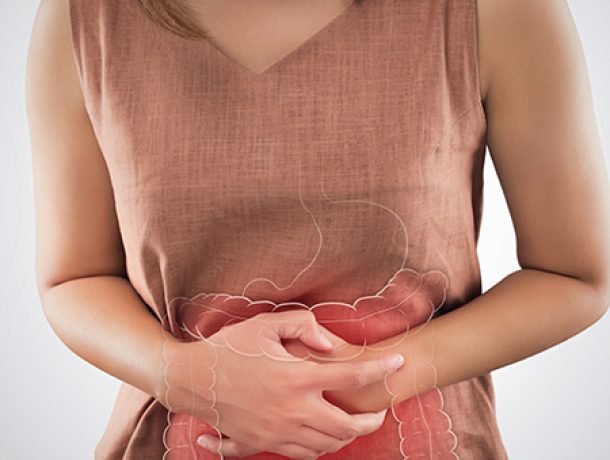
On Antibiotics? Here’s Why You Should Consider a Probiotic, Too
A healthy balanced body has over 100 trillion microflora – tiny living organisms that help keep your systems functioning properly. But if you’re taking antibiotics, things can get off track. Antibiotics aren’t very picky and don’t discriminate between good and bad bacteria. They kill both and can disturb your natural microbial balance… often with (very) […]
Read More
Why Probiotics for Kids are Important
Back to school is upon us, which typically means soon kids will be getting sick, going to class, and spreading germs all around their classrooms. This vicious cycle wreaks havoc on tiny immune systems and it often takes weeks—sometimes even longer to recover. One important step parents can take to help their kids feel better […]
Read More
Why Pharmacists Are Recommending An Everyday Probiotic
You hear it from everyone you know, coworkers, friends, family, even your pharmacist—probiotics are important! The benefits of everyday probiotics are numerous, and study upon study is being conducted to identify the link between gut health and how it affects our overall health and well-being. If you are a little late to the probiotic party, […]
Read More*These statements have not been evaluated by the Food and Drug Administration. These products are not intended to diagnose, treat, cure or prevent any disease.
CLINICAL REFERENCES:
- Segers ME, Lebeer S. Towards a better understanding of Lactobacillus rhamnosus GG - host interactions. Microbial Cell Factories. 2014;13(Suppl 1):S7. doi:10.1186/1475-2859-13-S1-S7. [LINK https://www.ncbi.nlm.nih.gov/pmc/articles/PMC4155824/ ]
- Sugahara H, et al. Probiotic Bifidobacterium longum alters gut luminal metabolism through modification of the gut microbial community. Scientific Reports 5, Article number: 13548 (2015) [LINK http://www.nature.com/articles/srep13548 ]
- Kirjavaninen et al. Aberrant composition of gut microbiota of allergic infants. FEMS Immunol Med Microbiol. 2001;32;1. https://www.ncbi.nlm.nih.gov/pmc/articles/PMC1773282/
Bjorksten et al. The intestinal microflora in allergic Estonian and Swedish infants. Clin Exp Allergy. 1999;29:342. - McFarland LV. Epidemiology, risk factors and treatments for antibiotic-associated diarrhea. Dig Dis. 1998;16(5):292-307
https://www.ncbi.nlm.nih.gov/pubmed/9892789 - Waigankar SS, Patel V. Role of probiotics in urogenital healthcare. Journal of Mid-Life Health. 2011;2(1):5-10. doi:10.4103/0976-7800.83253.
https://www.ncbi.nlm.nih.gov/pmc/articles/PMC3156505/
and
Vásquez A, Jakobsson T, Ahrné S, Forsum U, Molin G. Vaginal Lactobacillus Flora of Healthy Swedish Women. Journal of Clinical Microbiology. 2002;40(8):2746-2749. doi:10.1128/JCM.40.8.2746-2749.2002.
https://www.ncbi.nlm.nih.gov/pmc/articles/PMC120688/ - Wright JJ, Paauw DP. Complications of Antibiotic Therapy. Medical Clinics of North America; July 2013, 97(4): 667–679.
http://www.medical.theclinics.com/article/S0025-7125(13)00029-1/abstract - Vanderhoof J.A., et al . Lactobacillus GG in the prevention of antibiotic-associated diarrhea in children. J Pediatr. 1999;135(5):564-568.
https://www.ncbi.nlm.nih.gov/pubmed/10547243 - “ A.G. Mohamed, Hayam M. Abbas, Abeer F. Zayan and Nayra Sh. Mehanna, 2016. Bacterial Strains as Vitamins Supplements to Prepare Functional Dairy Beverages. American Journal of Food Technology, 11: 234-239. https://scialert.net/fulltextmobile/?doi=ajft.2016.234.239
- Probiotics, What’s the Bottom Line. National Center for Complementary and Integrative Health, National Institutes of Health website. Accessed April 2, 2017 https://www.nccih.nih.gov/health/probiotics-what-you-need-to-know
- Kim SE, et al. Change of Fecal Flora and Effectiveness of the Short-term VSL#3 Probiotic Treatment in Patients With Functional Constipation. Constipation Research group of Korean Society of Neurogastroenterology and Motility. J Neurogastroenterol Motil. 2015 Jan 1;21(1):111-20. doi: 10.5056/jnm14048. https://www.ncbi.nlm.nih.gov/pubmed/25537674
- Probiotics May Ease Constipation. Harvard Health Publications, Harvard Medical School website. Accessed April 4, 2017 http://www.health.harvard.edu/blog/probiotics-may-ease-constipation-201408217377
- Dimidi E, et al. The effect of probiotics on functional constipation in adults: a systematic review and meta-analysis of randomized controlled trials. The American Journal of Clinical Nutrition. August 6, 2014, doi:3945/ajcn.114.089151 https://ajcn.nutrition.org/article/S0002-9165(23)04789-5/fulltext
- Khalif IL, et al. Alterations in the colonic flora and intestinal permeability and evidence of immune activation in chronic constipation. Dig Liver Dis. 2005 Nov; 37(11):838-49. https://www.ncbi.nlm.nih.gov/pubmed/16169298
and
Barbara G, et al. Interactions between commensal bacteria and gut sensorimotor function in health and disease. Am J Gastroenterol.2005 Nov;100(11):2560-8. https://www.ncbi.nlm.nih.gov/pubmed/16279914 - Miller LE, Ouwehand AC. Probiotic supplementation decreases intestinal transit time: meta-analysis of randomized controlled trials. World J Gastroenterol. 2013 Aug 7; 19(29):4718-25. https://www.ncbi.nlm.nih.gov/pubmed/23922468
- Cha BK, et al. The effect of a multispecies probiotic mixture on the symptoms and fecal microbiota in diarrhea-dominant irritable bowel syndrome: a randomized, double-blind, placebo-controlled trial. J Clin Gastroenterol. 2012;46:220–227. doi: 10.1097/MCG.0b013e31823712b1.
and
Whorwell PJ, Altringer L, Morel J, et al. Efficacy of an encapsulated probiotic Bifidobacterium infantis 35624 in women with irritable bowel syndrome. Am J Gastroenterol. 2006;101:1581–1590. doi: 10.1111/j.1572-0241.2006.00734.x. - MedlinePlus, U.S. National Library of Medicine website. Accessed April 4, 2017 https://medlineplus.gov/diarrhea.html
- Using Probiotics for Diarrhea. WebMD website. Accessed April 4, 2017 http://www.webmd.com/digestive-disorders/probiotics-diarrhea#1
-
McFarland LV. Meta-analysis of probiotics for the prevention of traveler's diarrhea. Travel Med Infect Dis. 2007 Mar;5(2):97-105.
https://www.ncbi.nlm.nih.gov/pubmed/17298915
and
Traveler’s Diarrhea. Centers for Disease Control and Prevention website. Accessed March 31, 2017. https://wwwnc.cdc.gov/travel/yellowbook/2016/the-pre-travel-consultation/travelers-diarrhea - How to Prevent Diarrhea While You Take Antibiotics. Cleveland Clinic website. Accessed April 4, 2017 https://health.clevelandclinic.org/how-to-prevent-diarrhea-while-you-take-antibiotics
- Infectious diarrhea: Can probiotics help against diarrhea? PubMed Health, U.S. National Library of Medicine website. Accessed April 4, 2017. https://www.ncbi.nlm.nih.gov/pubmedhealth/PMH0088733/
- Based on market survey conducted by American Lifeline December 2016.
- Could Probiotics Help Alleviate your Functional Gastrointestinal Symptoms? International Foundation for Functional Gastrointestional Disorders website. Accessed April 4, 2017. https://www.iffgd.org/diet-treatments/could-probiotics-help-your-symptoms.html
- Kim HJ, et al. A randomized controlled trial of a probiotic, VSL#3, on gut transit and symptoms in diarrhoea-predominant irritable bowel syndrome. Aliment Pharmacol Ther (2003)17: 895–904. https://www.ncbi.nlm.nih.gov/pubmed/12656692
- Kim HJ, et al. A randomized controlled trial of a probiotic combination VSL# 3 and placebo in irritable bowel syndrome with bloating. Neurogastroenterol Motil (2005)17: 687–696. https://www.ncbi.nlm.nih.gov/pubmed/16185307
- Supplements for IBS: What Works? WebMD website. Accessed April 4, 2017 http://www.webmd.com/ibs/features/supplements-for-ibs-what-works#1
- Bloating 101: Why You Feel Bloated. WebMD website. Accessed April 4, 2017 http://www.webmd.com/digestive-disorders/diarrhea-10/bloated-bloating
- Health benefits of taking probiotics. Harvard Health Publications, Harvard Medical School website. Accessed March 31, 2017. http://www.health.harvard.edu/vitamins-and-supplements/health-benefits-of-taking-probiotics
- Survey of full-time U.S. pharmacists who stock Florajen, by DMD Healthcare Research, December 2015.
- Jiang, W., Ni, B., Liu, Z. et al. The Role of Probiotics in the Prevention and Treatment of Atopic Dermatitis in Children: An Updated Systematic Review and Meta-Analysis of Randomized Controlled Trials. Pediatr Drugs 22, 535–549 (2020). https://doi.org/10.1007/s40272-020-00410-6
- Tan‐Lim, CSC, Esteban‐Ipac, NAR, Mantaring, JBV, et al. Comparative effectiveness of probiotic strains for the treatment of pediatric atopic dermatitis: A systematic review and network meta‐analysis. Pediatr Allergy Immunol. 2021; 32: 124– 136. https://doi.org/10.1111/pai.13305
- M. Alexander Otto. “Yeast Infection Four Times as Likely with Penicillin Use.” Clinician Reviews, 13 Dec. 2016, https://www.mdedge.com/clinicianreviews/article/77427/infectious-diseases/yeast-infection-four-times-likely-penicillin-use?sso=true.
- Navarro-López V, Ramírez-Boscá A, Ramón-Vidal D, et al. Effect of Oral Administration of a Mixture of Probiotic Strains on SCORAD Index and Use of Topical Steroids in Young Patients With Moderate Atopic Dermatitis: A Randomized Clinical Trial. JAMA Dermatol. 2018;154(1):37–43. doi:10.1001/jamadermatol.2017.3647
- Yan F, Polk DB. Probiotics and immune health. Curr Opin Gastroenterol. 2011 Oct;27(6):496-501. doi: 10.1097/MOG.0b013e32834baa4d. PMID: 21897224; PMCID: PMC4006993. https://pubmed.ncbi.nlm.nih.gov/21897224/
- Hanifin JM, Reed ML; Eczema Prevalence and Impact Working Group. A population-based survey of eczema prevalence in the United States. Dermatitis. 2007 Jun;18(2):82-91. doi: 10.2310/6620.2007.06034. PMID: 17498413.
- Eczema Prevalence, Quality of Life and Economic Impact.” National Eczema Association, 16 Mar. 2021, https://nationaleczema.org/research/eczema-facts/.
- Elizabeth Campbell and Allen Sayler. “Medical Foods – Insights Into FDA's Interpretation and Enforcement.” Food Safety RSS, Food Safety, 6 Mar. 2018, https://www.food-safety.com/articles/5701-medical-foods-insighte28099s-into-fdae28099s-interpretation-and-enforcement.
- Simpson EL, Guttman-Yassky E, Margolis DJ, et al. Association of Inadequately Controlled Disease and Disease Severity With Patient-Reported Disease Burden in Adults With Atopic Dermatitis. JAMA Dermatol. 2018;154(8):903-912.
- Wei W, Anderson P, Gadkari A, et al. Extent and consequences of inadequate disease control among adults with a history of moderate to severe atopic dermatitis. J Dermatol. 2018;45(2):150-157.
- Study finds 1,000 species of bacteria on healthy human. Los Angeles Times website. https://www.latimes.com/archives/la-xpm-2009-may-29-sci-skin-bacteria29-story.html. Accessed April 13, 2021.
- Segers ME, Lebeer S. Towards a better understanding of Lactobacillus rhamnosus GG – host interactions. Microbial Cell Factories. 2014;13(Suppl 1):S7. doi:10.1186/1475-2859-13-S1-S7. https://www.ncbi.nlm.nih.gov/pmc/articles/PMC4155824/.
- Hill D, Sugrue I, Tobin C, Hill C, Stanton C, Ross RP. The Lactobacillus casei Group: History and Health Related Applications. Front Microbiol. 2018;9:2107. Published 2018 Sep 10. doi:10.3389/fmicb.2018.02107
- Chyn Boon Wong, Toshitaka Odamaki, Jin-zhong Xiao, Beneficial effects of Bifidobacterium longum subsp. longum BB536 on human health: Modulation of gut microbiome as the principal action, Journal of Functional Foods, Volume 54, 2019, Pages 506-519, ISSN 1756-4646, https://doi.org/10.1016/j.jff.2019.02.002.
- Sugahara H, et al. Probiotic Bifidobacterium longum alters gut luminal metabolism through modification of the gut microbial community. Scientific Reports 5, Article number: 13548 (2015) http://www.nature.com/articles/srep13548
SURVEY & TRIAL REFERENCES:
- #1 Pharmacist Recommended Probiotic based on 2025 IQVIA physician survey data
- Florajen Balance Study Data and Consensus Meeting, February 5, 2019, convened with Healthcare Professionals in the following specialties: Gastroenterology, Pediatric Gastroenterology, Obstetrics and Gynecology, Internal Medicine, Retail Pharmacy, Hospital Clinical Pharmacy

